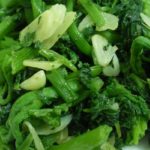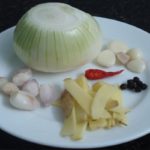In the blue zone, some cooking recipes require preparation time, but most take less than half an hour. Another plus is that most ingredients are affordable, such as beans, whole grains, and fresh herbs.
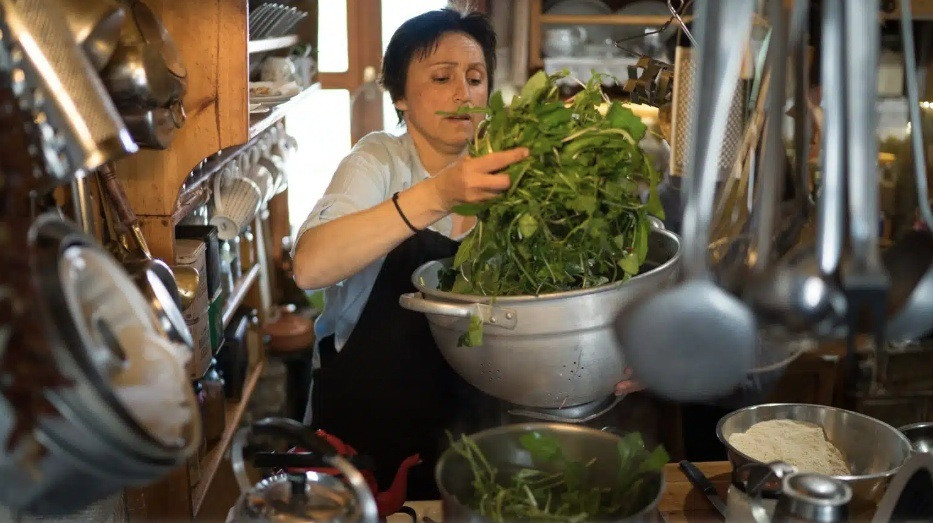
The meals of people in the blue zone are made from fresh ingredients, mainly based on plants. Photo: Blue Zones
Here are some cooking tips for longevity according to Blue Zones:
1. Use fewer ingredients
The dietary regime in the blue zone tends to use about 20 similar ingredients repeatedly. Less variety can help people not overeat and keep their immune system strong.
2. Add cruciferous vegetables
Cruciferous vegetables such as broccoli, cabbage, and cauliflower are known to help protect the heart, prevent cancer, and reduce oxidative stress.
In Sardinia (Italy), people add cruciferous vegetables to their daily appetizers. This is good for thyroid function and can help slow down the metabolic process and help you live longer.
According to the Clinical Nutrition Department, K Hospital (Hanoi), cruciferous vegetables are rich in nutrients such as carotenoids (beta-carotene, lutein, zeaxanthin), vitamin C, E, K, folate, and minerals. Cruciferous vegetables are also a good source of fiber.
In addition, cruciferous vegetables contain glucosinolates, which are sulfur-containing compounds that give the distinctive strong smell and bitter taste to cruciferous vegetables.
During food processing, chewing, and digestion, glucosinolates in cruciferous vegetables are broken down to form bioactive compounds such as indoles, nitriles, thiocyanates, and isothiocyanates.
Among them, indole-3-carbinol (an indole) and sulforaphane (an isothiocyanate) have been most studied for their anti-cancer effects.
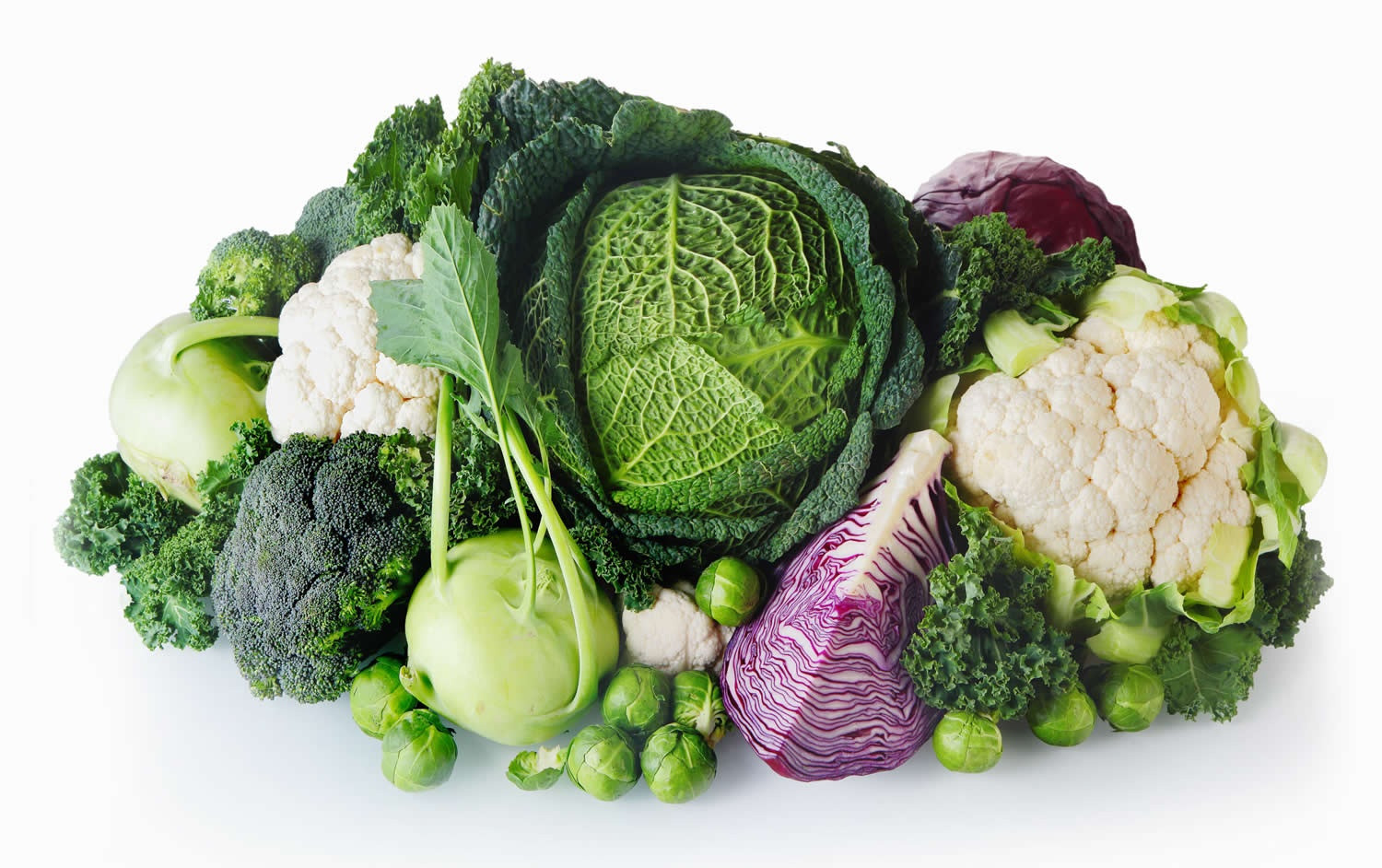
Cruciferous vegetables provide many health benefits. Photo: Health Jade
3. Utilize legume dishes
In the blue zone, legumes are the main ingredient in daily diets. They are cooked into soups and stews, seasoned, and supplemented with grains and vegetables.
Not only that, legumes and grains are a much healthier source of protein than meat or eggs. They are also rich in fiber and complex carbohydrates. And finally, they are inexpensive, flexible, and allow delicate flavors.
In Okinawa (Japan), tofu is like bread for the French and potatoes for Eastern Europeans. Okinawans eat tofu eight times more than Americans today.
Along with other soybean products, tofu is famous for its heart-protective effects. Studies have shown that people who consume soybean products instead of meat have lower cholesterol and triglyceride levels, reducing the risk of heart disease.
4. Complete dishes with olive oil
The monounsaturated fatty acids in olive oil are rapidly destroyed when heated at high temperatures. In blue zones, olive oil is kept at room temperature, added to bread, drizzled over vegetables, and added to soups and stews.
5. Supplement with fresh herbs and spices
Basil, oregano, rosemary, mint, garlic, turmeric, and sage all have well-documented medicinal values. They not only enhance the flavor of the dishes but also have healing properties.
Since most biological activities in herbs decrease as soon as they are plucked, it is best to use them when fresh.
People in the blue zone often pluck herbs from their gardens, which are like medicine cabinets.
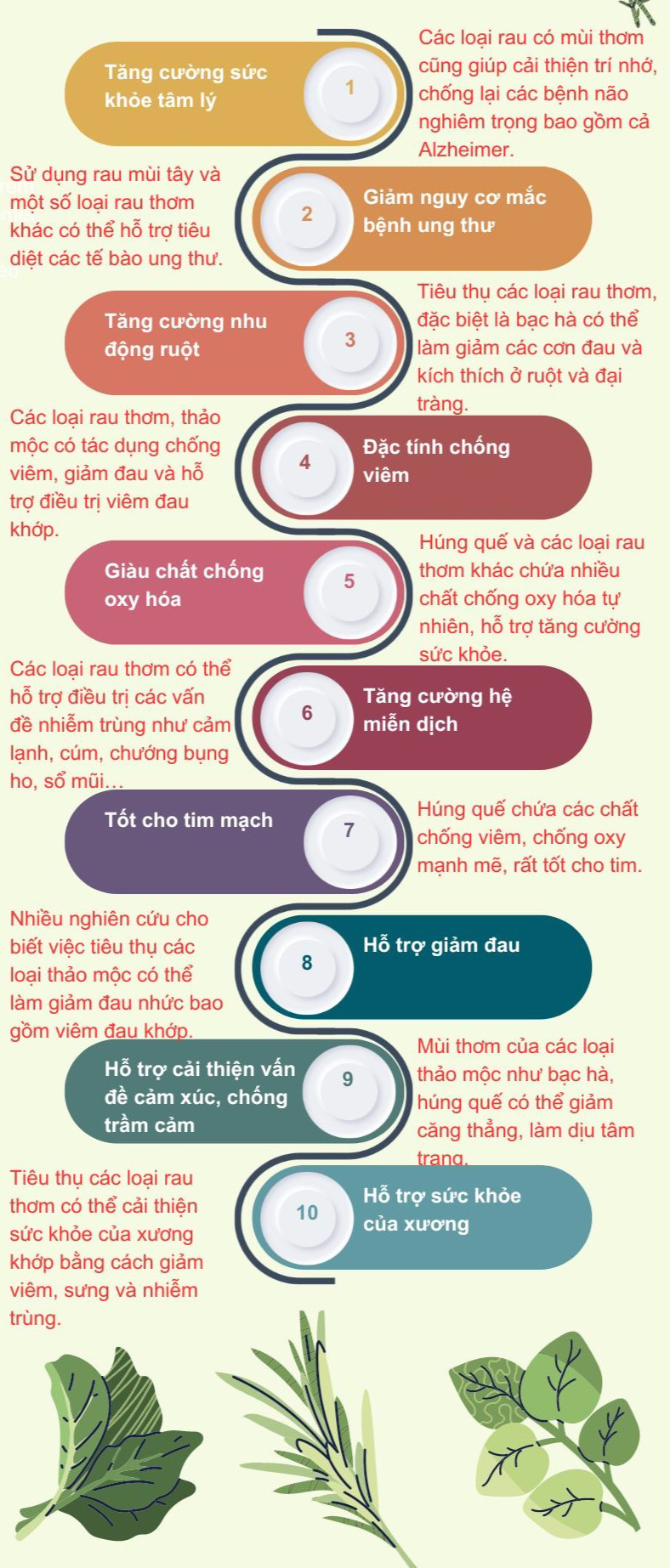
The health benefits of various herbs
6. Fiber is more important than we think
Grains, green vegetables, nuts, and legumes not only contain protein, complex carbohydrates, vitamins, and minerals that promote heart health, sharp minds, and cancer prevention, but also feed billions of live bacteria in our gut.
Some of these bacteria produce toxins such as choline, while others produce compounds that reduce inflammation, regulate metabolism, and provide energy to the immune system. Toxin-producing bacteria tend to thrive on meat and eggs, while healthy bacteria prefer fiber.
7. Enjoy your meal with red wine
We’ve all heard a lot about polyphenols and antioxidants, substances commonly found in red wine more than white wine. But it turns out that red wine, along with a plant-based diet, almost triples the absorption of antioxidants.
In addition, 90 to 95% of polyphenols in wine are converted in the gut, where beneficial bacteria convert them into strong compounds that reduce inflammation and alleviate leaky gut syndrome.
8. How you eat is also important
Finally, it is important to remember that eating for longevity depends not only on what you eat but also on how you eat. People in the blue zones teach us that having dinner with family, occasionally fasting, having a well-prepared breakfast, not eating too late at night, and other habits can help you stay healthier, live longer, and feel better.
In Sardinia, people greet each other on the street and say Akentannos, wishing you a 100-year life.
According to Dân trí

12 simple cooking tips every woman cannot miss
Whether you are a beautiful or ugly girl, clumsy or capable, no matter who you are, you definitely cannot miss these 12 cooking tips.
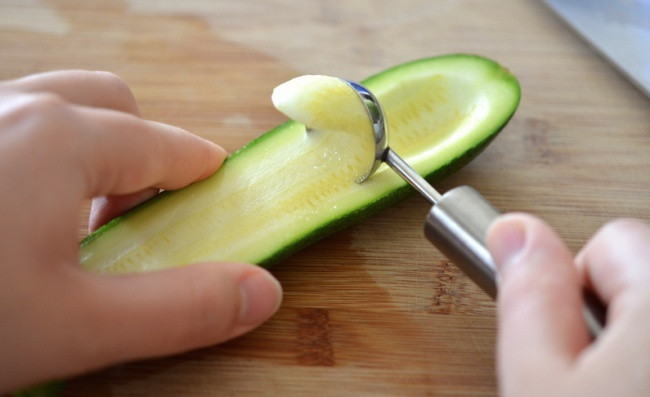
8 cooking tips to make you more productive
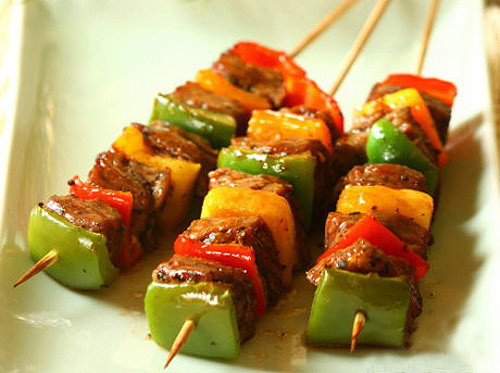
Enjoyable cooking tips to trick children into eating
More Useful Advice for Homemakers (Part 2)
Have you heard of the surprisingly easy tips to make cooking and household chores simpler? White radish eliminates the acrid taste of salted meat, adding alum to raw shrimp helps soften it, and adding cold water when frying eggs can make them crispy – these are just a few of the tricks to make your life easier.
Ten Strategies to Streamline Your Cooking Process
Are you a busy housewife looking for ways to save time in the kitchen? Did you know that flossing can also help you out? Check out these 10 tips to help you quickly and easily prepare delicious meals for your family. Learn how to peel garlic in 10 seconds and cut cherry tomatoes quickly for a healthy and tasty meal.

























